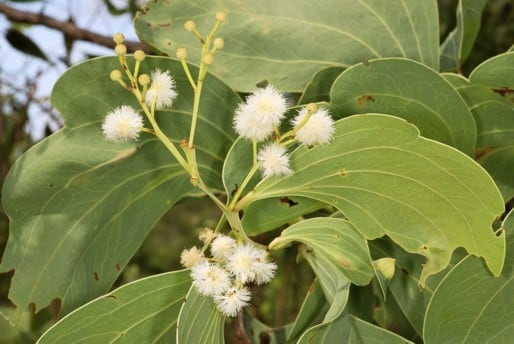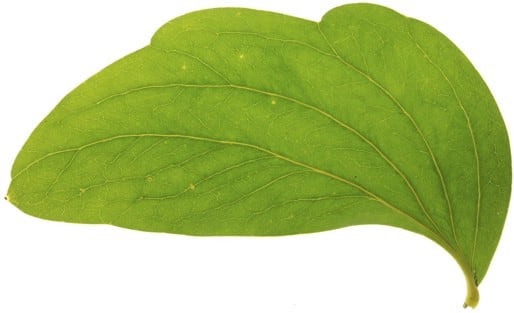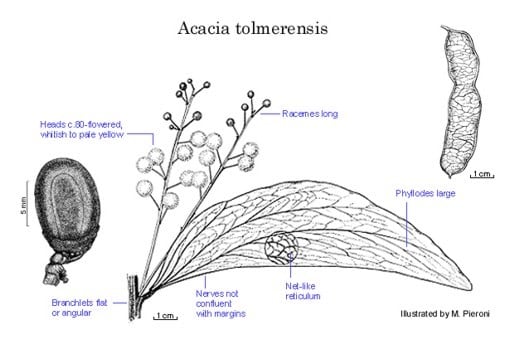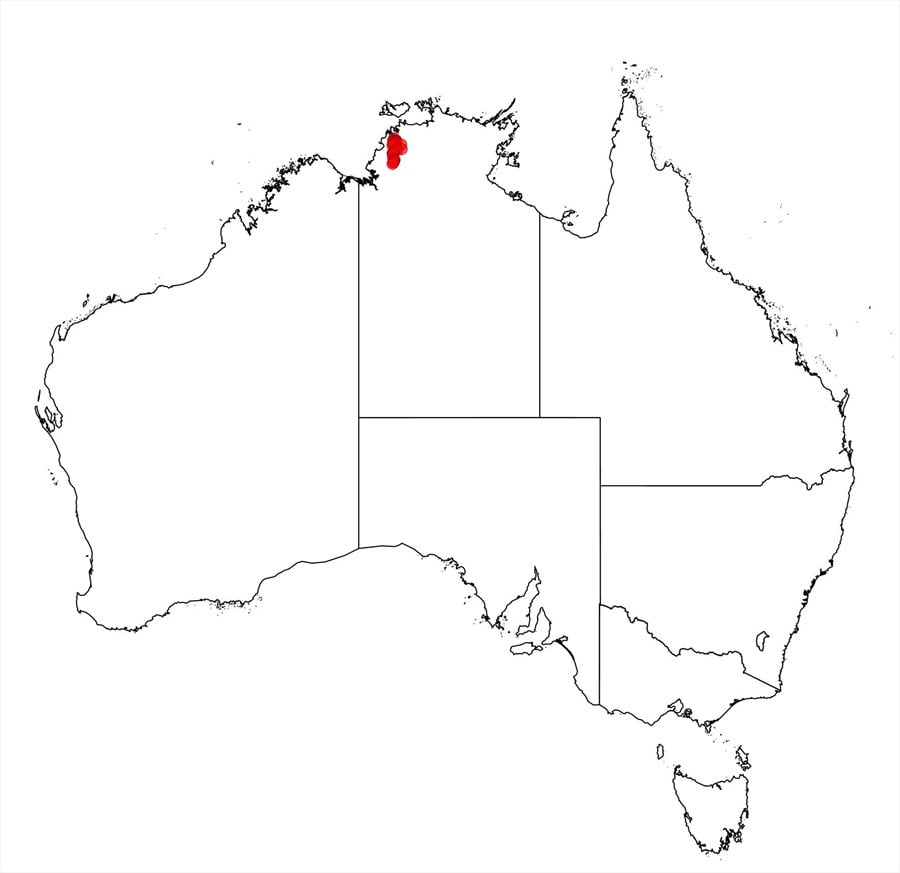Acacia tolmerensis G.J.Leach
WATTLE
Acacias of Australia
Family
Fabaceae
Distribution
Endemic in N.T. from the Tabletop Ra. S to Daly R.
Description
Glabrous, multistemmed shrub or sometimes a tree 1–3 (–4) m high, often suckering after fire, lightly pruinose on young phyllodes, branchlets and inflorescence axes. Branchlets prominently flattened or angular towards tips. Phyllodes dimidiately elliptic, shallowly recurved, 11–24.5 cm long, 4.5–9 cm wide, thinly coriaceous, normally grey-green to glaucous, with 3 or 4, rarely 6, primary longitudinal nerves ±running together at base but remaining free from lower margin, with secondary nerves forming an open reticulum; glands 3 or 4, with lowermost at distal end of pulvinus; pulvinus 4–7 mm long. Inflorescences racemose, sometimes terminally paniculate; raceme axes 5.5–15 cm long, rather stout, straight, 6–12-headed; peduncles 9–26 mm long; heads globular, 7–11 mm diam., densely c. 80-flowered, creamy white to pale yellow; bracteoles peltate. Flowers 5-merous; sepals united. Pods flat, 5.5–11 cm long, 2–3 cm wide, coriaceous to subwoody, transversely reticulate. Seeds transverse, elliptic, flattened, 8–10 mm long, brown; aril terminal.
Phenology
Flowers Nov.–Feb.
Habitat
Grows in sand in open forest.
Specimens
N.T.: Litchfield Natl Park, I.D.Cowie 1434 & C.R.Dunlop (BRI, CANB, DNA, K, MEL, NSW, PERTH); Daly R., L.L.V.Williams 173 & N.F.Madrill (DNA).
Notes
Most closely related to Acacia platycarpa which has terete branchlets, the main phyllode nerves basally confluent with the lower margin and smaller, fewer-flowered heads. Acacia dunnii is also related to A. tolmerensis but readily distinguished by its larger phyllodes, in addition to the branchlet and nervation characters noted for A. platycarpa.
FOA Reference
Data derived from Flora of Australia Volumes 11A (2001), 11B (2001) and 12 (1998), products of ABRS, ©Commonwealth of Australia
Author
R.S.Cowan, B.R.Maslin
Minor edits by B.R.Maslin & J.Rogers
This identification key and fact sheets are available as a mobile application:
URL: https://apps.lucidcentral.org/wattle/
© Copyright 2018. All rights reserved.









